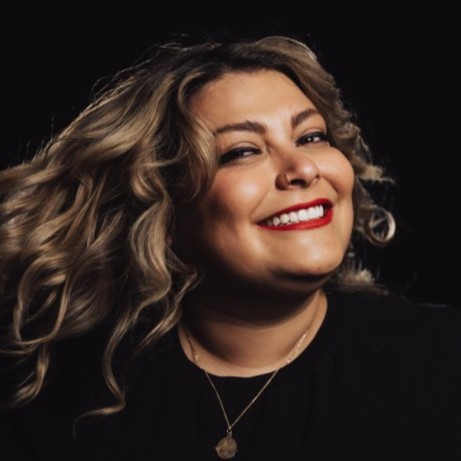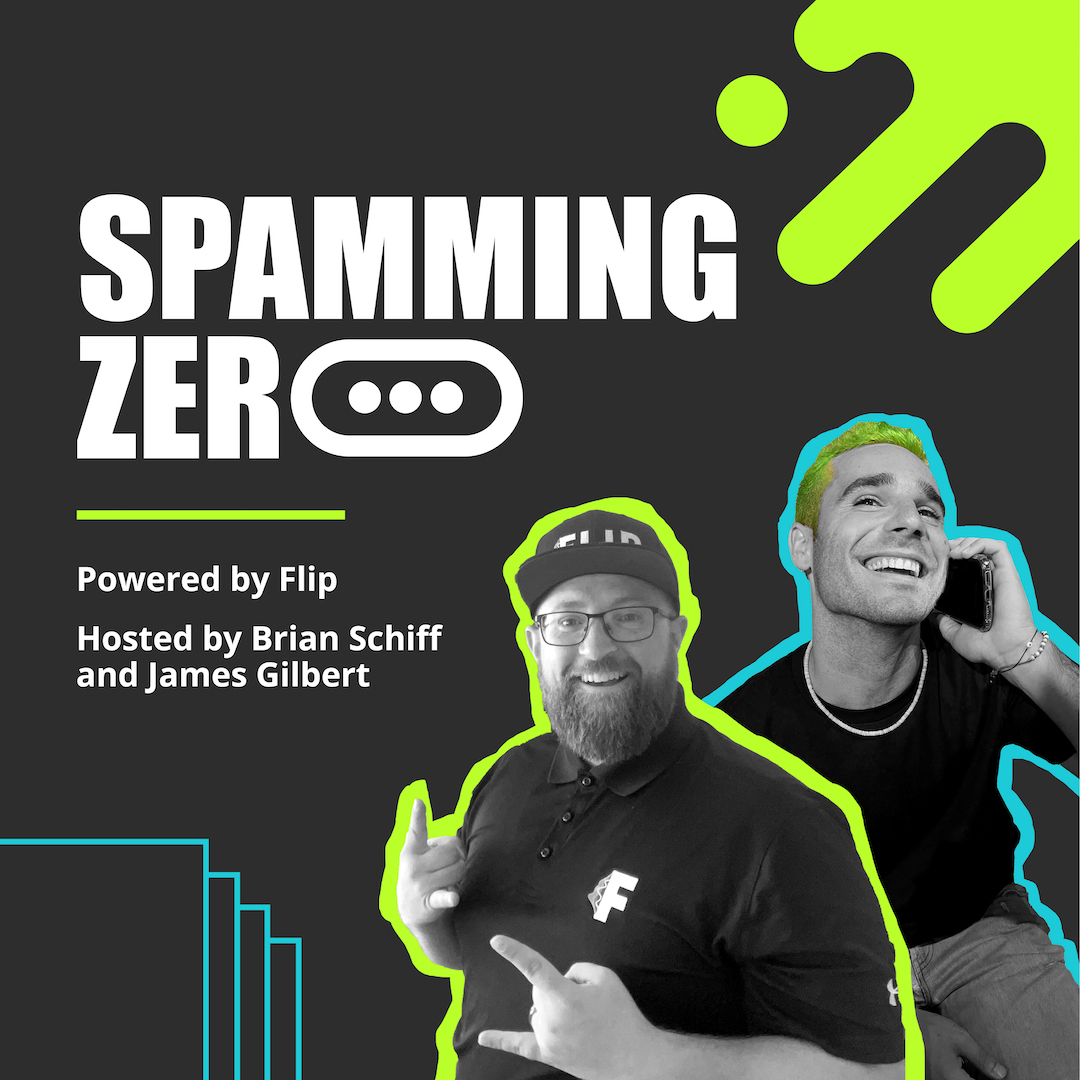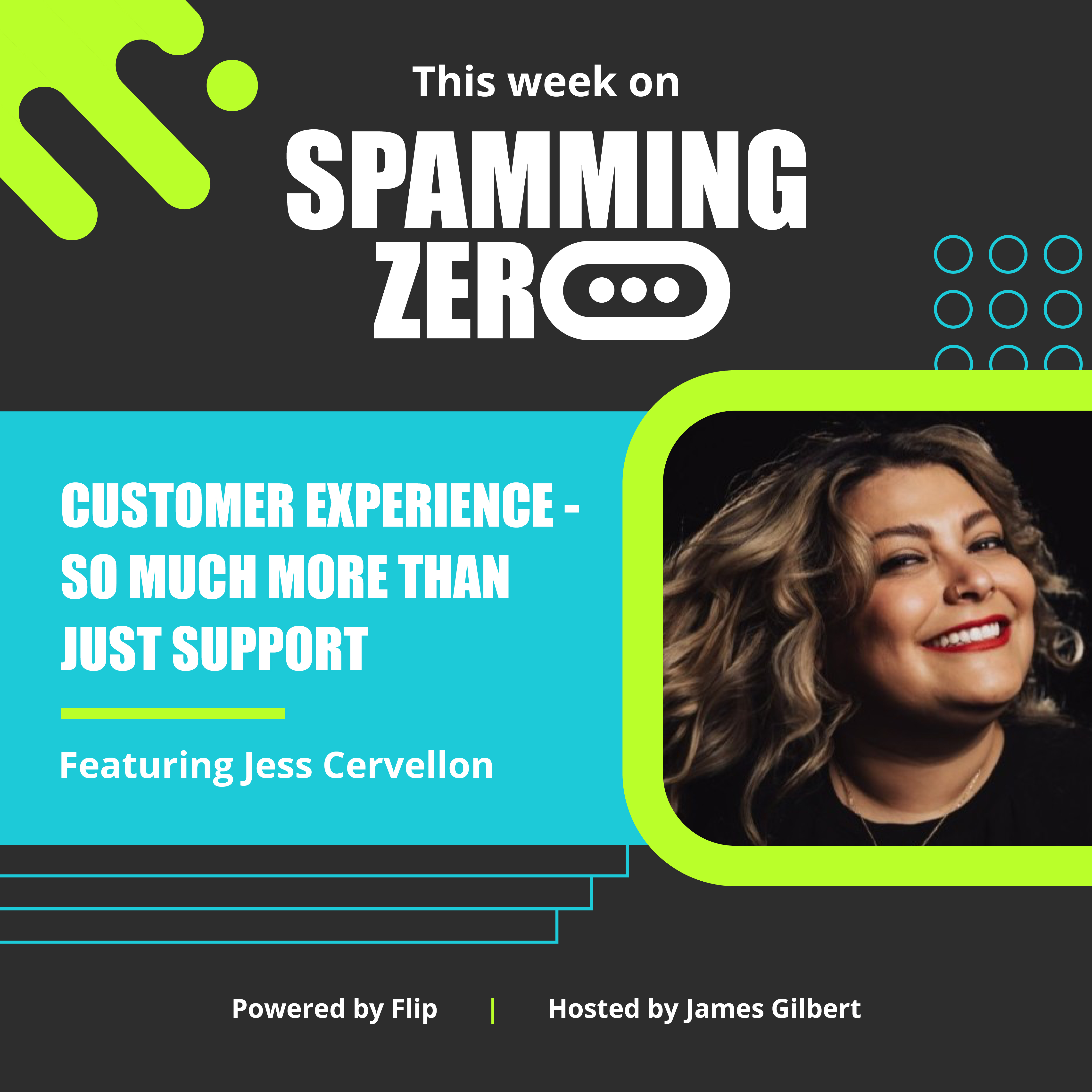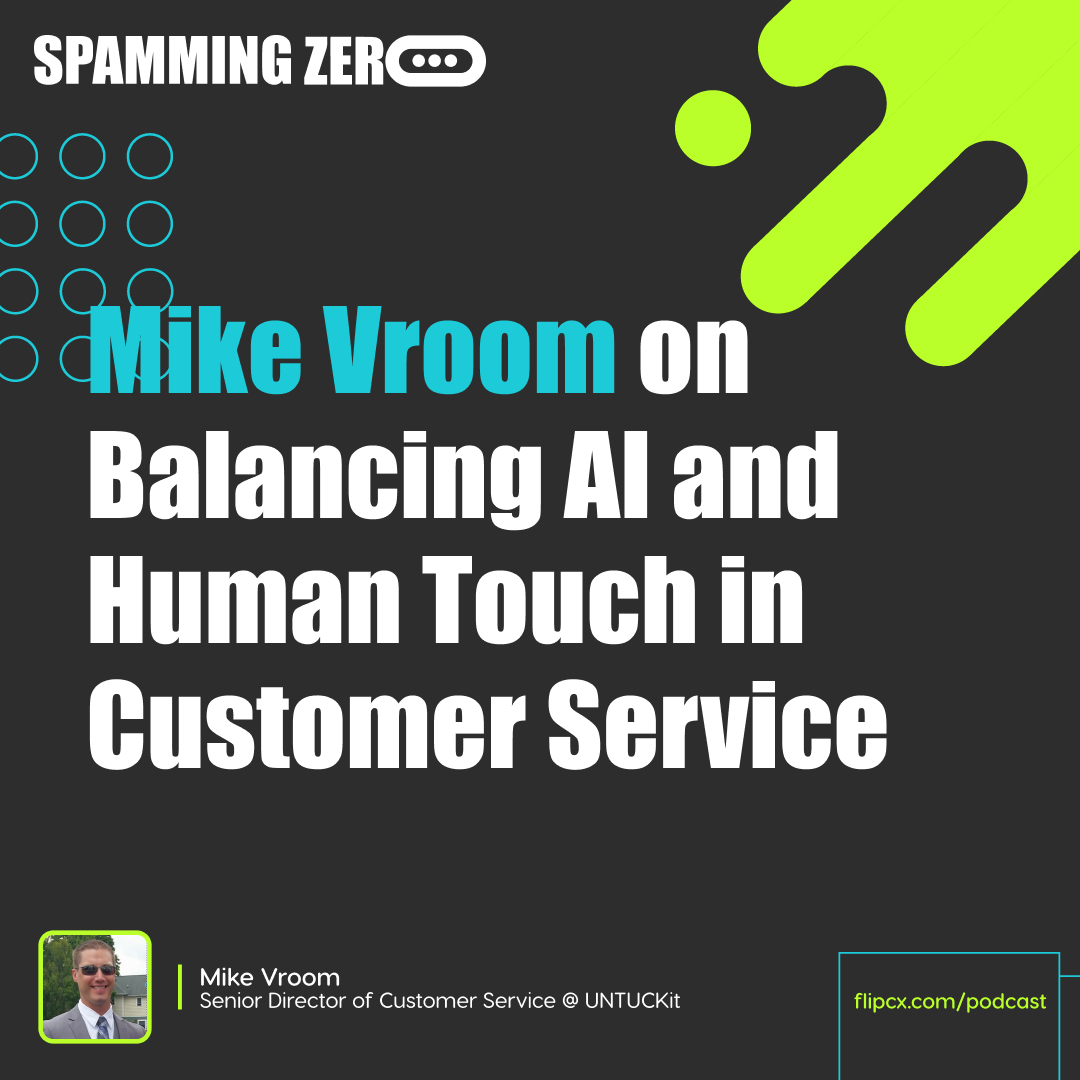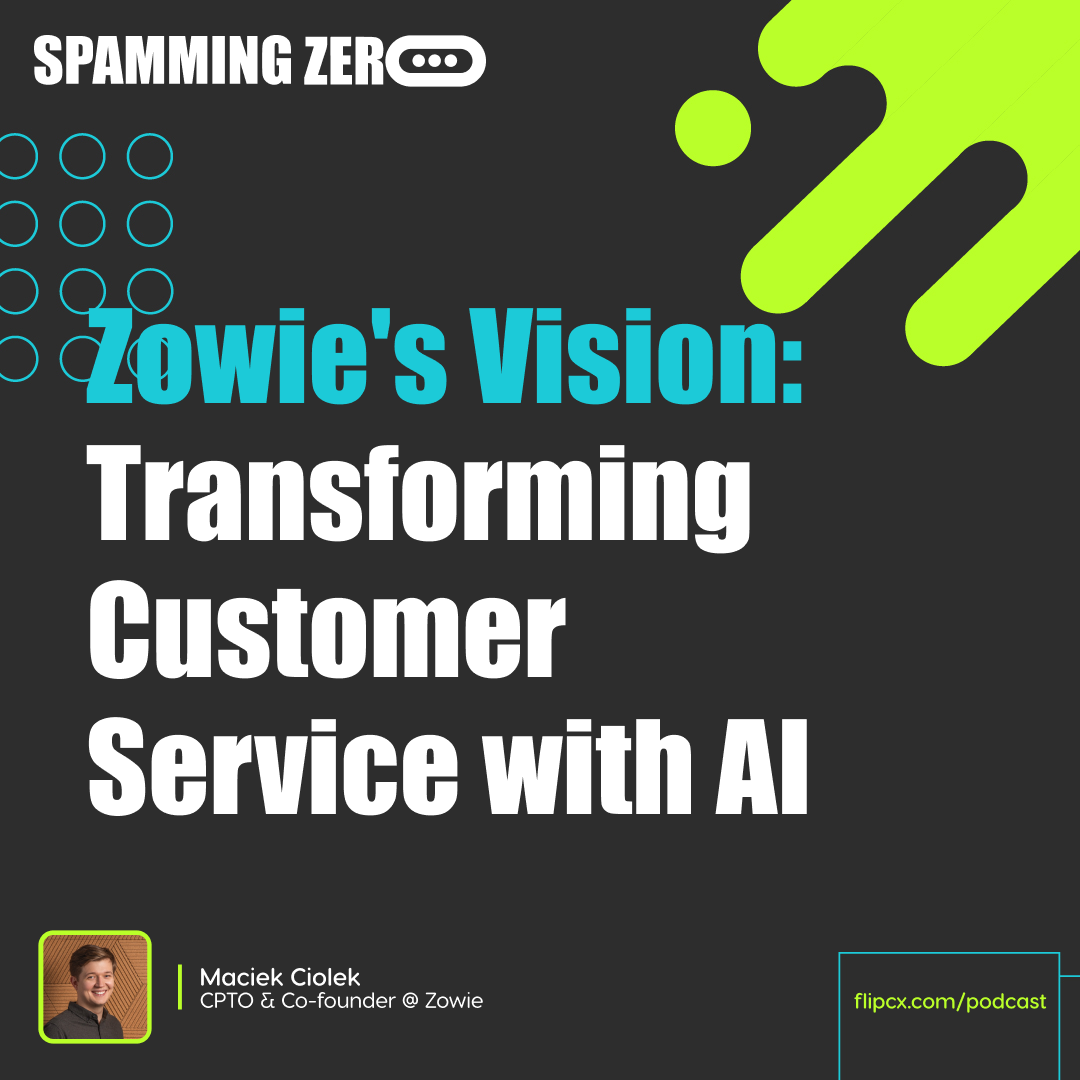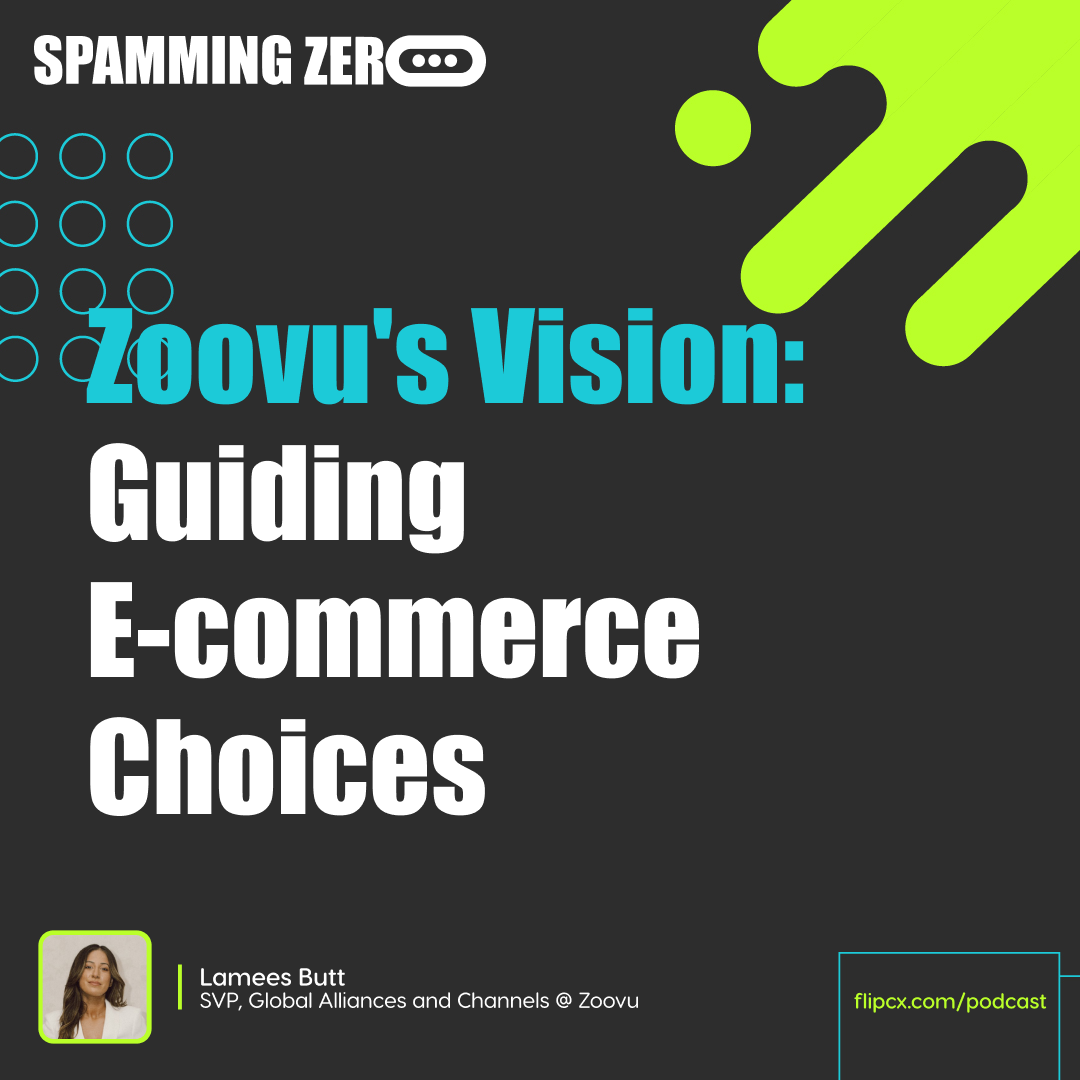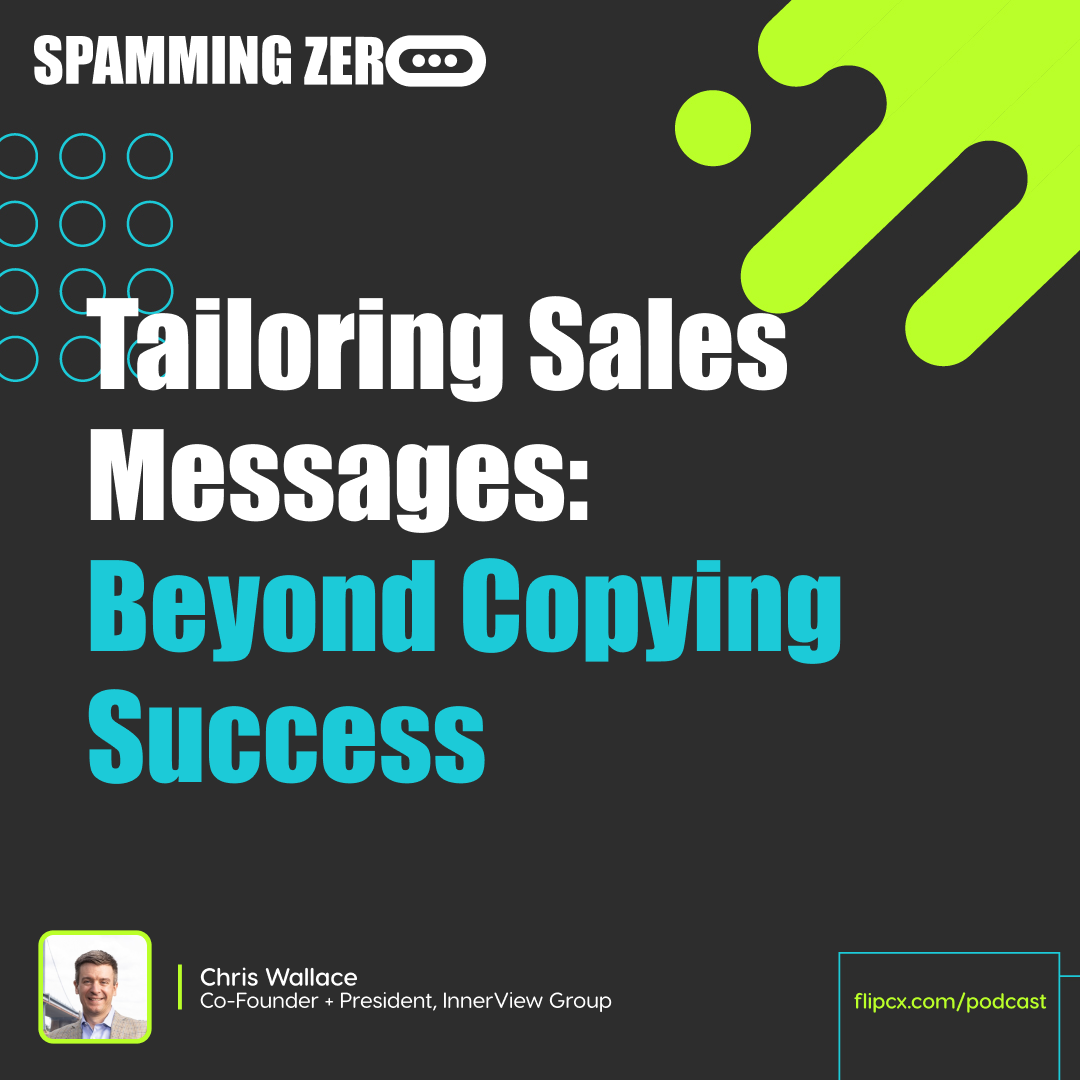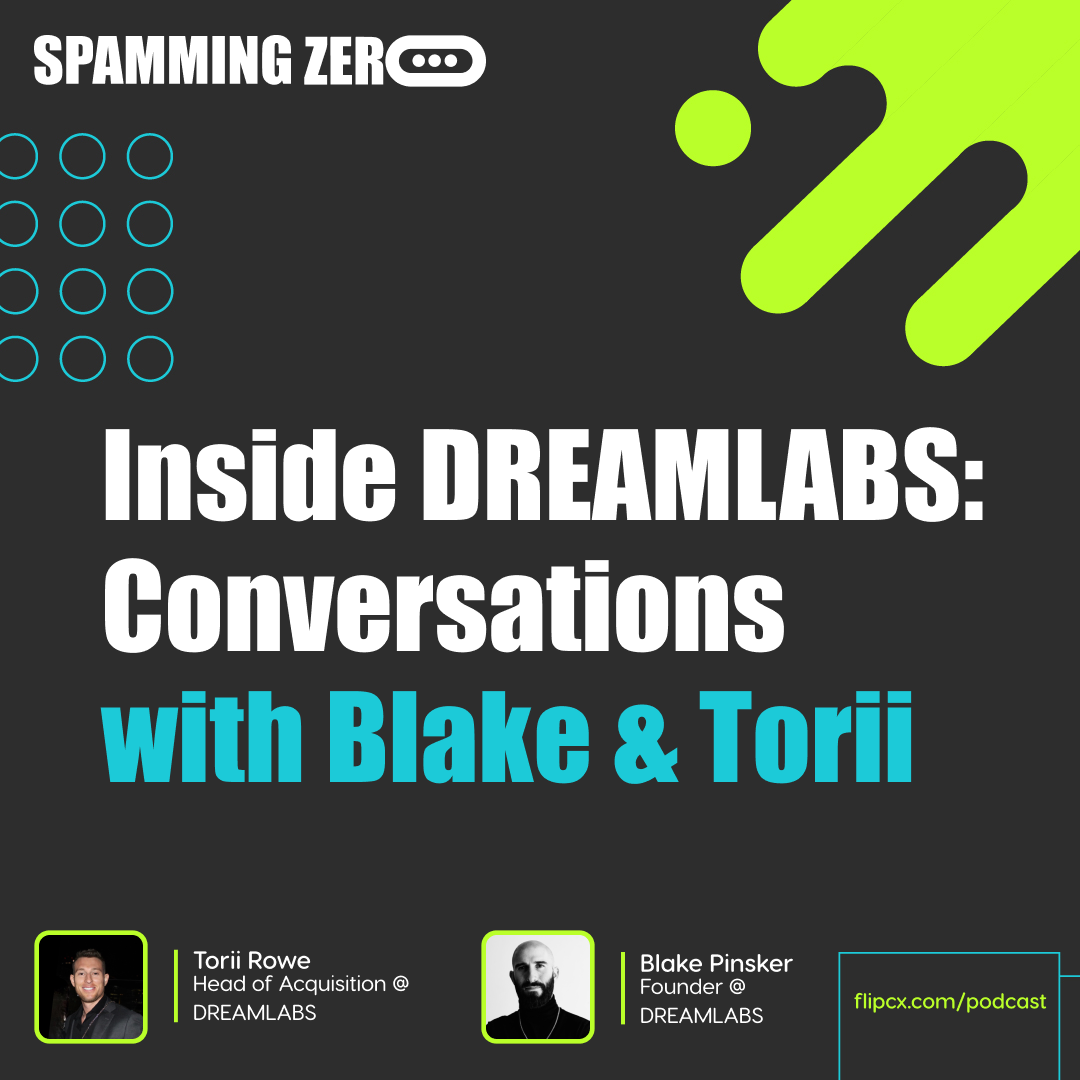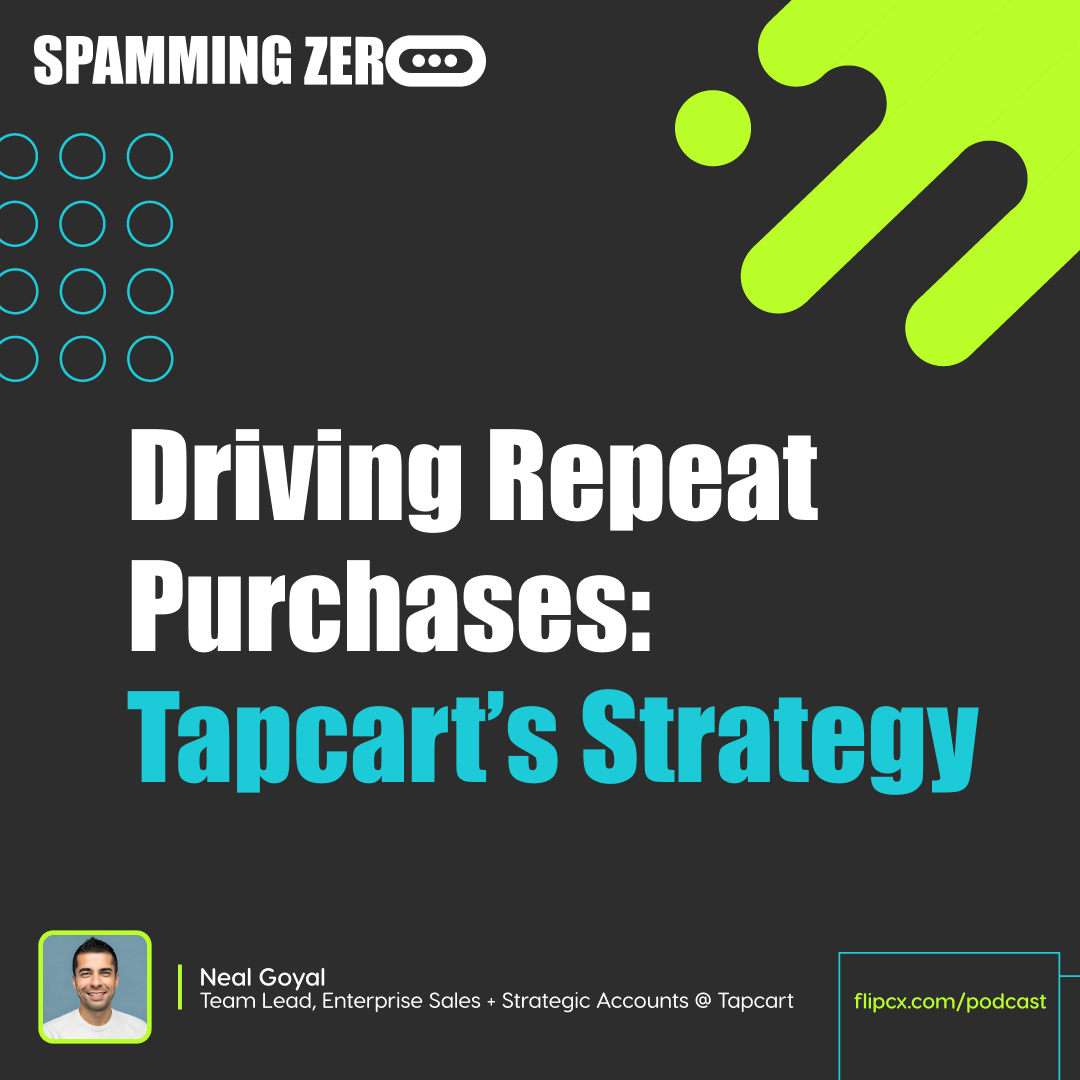Episode 40: Feastable's Jess Cervellon On Why Customer Experience Is SO Much More Than Just Support
- 0.5
- 1
- 1.25
- 1.5
- 1.75
- 2
James: Hey, everybody. Welcome to another episode of Spamming Zero. This month's sponsor of the podcast is Gorgias. If you're not familiar with Gorgias, Gorgias is a help desk, but it's specifically meant for e- commerce brands or D2C brands. I love, love, love, love their mission. Listen to this. " We believe that the next version of commerce should be more open and anyone should be able to be a part of it. As a merchant or a customer, we believe decentralized commerce is better for everyone. Their core values maximize your impact customer first. Strive for excellence. Take extreme ownership and 100% honest." I love what they do. Gorgias is one of our favorites. They work with brands like Steve Madden, Ollipop and others. Too often, customer service gets a bad rap and Gorgias helps make sure that that gets a better wrap. Here's a testimonial from a CEO and founder at Darn Good Yarn. " Gorgias gives us a wholistic view of our customers. This way we can provide them with fast and personalized help." Love it. Check them out. If you're not familiar with their website, it's G- O- R- G- I- A- S. com. Check out Gorgias.
James: I'm James.
James: And I'm Brian.
James: And this is Spanning Zero.
James: I am so excited to have you on the show today because I think more people need to be listening to you. You're one of my favorite followers right now on LinkedIn. I even clicked your little bell every time you post and I'm seeing your stuff. I love you. I love you. I'm all about you right now. So by the way, we are joined by Jess Cervellon. Did I get that right? Cervellon?
Jess Cervellon: Oh, my God. You did get that right. How did you know?
James: I do my homework.
Jess Cervellon: Okay, I'm into that. Thank you. Thank you.
James: If you aren't familiar with Jess, she also co- hosts a podcast called Oopsie Podcast. So we've got to start here because I'm all for helping other podcasters. So we're giving you a little plug here. Jess, how in the world did you come up with Oopsie Podcast, and what is it about?
Jess Cervellon: Okay, so backstory. My cohost, her name is Zoe Kahn. She does CX at Chomps, the meat sticks company. The reason that's relevant is because, well, she's my co- host, that's why it's relevant. But Zoe and I met in a Discord channel. It's a CX Discord. We have almost 800 members and it was created by Eli Wise. So anyway. So Zoe and I met. One day, we're in this channel or in this Discord and we're all joking around like, " Dang, I made a boo- boo, and I want to share it with somebody so I don't feel like an asshole." Apologies. I curse.
James: This is explicit. You can do whatever you want on here.
Jess Cervellon: Okay. Okay, perfect. So anyway. So Zoe was like, " Oh, I want to share this." And she was, " I want to share this moment, this asshole moment, and like to share it with the world and like share what I've learned from it." So all of a sudden, she shares this moment in a random channel, and that random channel ends up all of us chattering and turns into another channel that we called Oopsie, just randomly just like Oopsie Channel and like a discard. So Zoe and I have never met, and we actually only recently became official last week when we physically met, but Zoe and I always knew each other in the space and we started just vibing on this Discord about these oopsies in this channel and we moved that friendship to text message, and I'm sending her audio messages of my deepest oopsies, which are actually on Episode 1 of Oopsie Podcast. Anyway. So Zoe and I were like, " Man, we really should make a blog or do something together." And we were like, " Why don't we just make a Oopsie Podcast, and like it's a passion project?" And I was like, " Yeah, dog. I'm down. Let's do this." So I bought a microphone, thought nobody was going to listen to it, and we created Oopsie Podcast based off of mistakes that you make. And essentially, the tagline is" You live, laugh, learn." You make a mistake, you share it with the people, and you talk about what that mess up was, and what you learn so other people can learn from your mistake, maybe make that mistake, or just realize that we're all human, and we're not all going to be perfectionists, and we're going to get shit wrong sometimes.
James: I freaking love it, the concept of it. By the way, every Thursday on LinkedIn I try to do a post. I call it my CMO fails. So it's very similar. There's just not enough people that are sharing their failures. And especially once you reach an executive level, they definitely don't share enough, and everyone always looks up to the executives at companies and think, " Oh, I want to reach that point," but they don't hear about all the failures that are happening behind the scenes that they never see the light of. And I just freaking love that concept of a podcast. So love the fact we can plug it a little bit here. So go listen to Oopsie Podcasts as well. And listen, so you're Head of Customer Experience at Feastables. Correct me if I'm wrong here, but I believe MrBeast and them do stuff with you guys. Is that correct?
Jess Cervellon: Yeah. So Feastables is a MrBeast Company. MrBeast, for the audience and anybody who doesn't know MrBeast, is one of the world's largest YouTube influencers, and he decided one day-
James: I think he is the largest.
Jess Cervellon: No, no. He is large, but I-
James: And I think he is the largest, right?
Jess Cervellon: MrBeast-
James: You don't want to give him any more inaudible.
Jess Cervellon: ... isthe largest YouTube influencer. Well, it's just I don't want to... Things change every day. You've just got to fact- check yourself. That's all. I don't want to put things out there, and be completely wrong on your podcast. That's it. So MrBeast is the world's largest YouTube influencer. And so why that is very important and we will get to it, he decides one day he's going to create a snack company but not just a snack company that is oh, the next Hershey's. He decides I'm going to create a Better- For- You Snack Company and was born Feastables. So then, he created Feastables co- founded it along with some other individuals, and enter the world of Better- For- You Snacking from Feastables. And that's the company that I work for. I don't know. I feel like it's like I'm being really humble here.
James: Listen, I think it's a really fun brand. I think that if you go from MrBeast's personality, you guys are really honing in on that, and we can get into that in a little bit. But I just want to start with you. Tell the listeners a little bit about who you are. I gave a little bit of background about who you are, what you're doing right now, but just tell the listeners who you are.
Jess Cervellon: Yeah. So for all intense purposes, I am Jess Cervellon. I am Head of CX at Feastables, but I've actually have been in customer experience for 12 plus years. I think this is my 13th year now. My background, actually, is not in D2C and e- comm. My background is actually in SaaS. Feastables is actually a startup, and that's going to come up a lot in our interview. By day, head of CX at Feastables. At night, before work, on the weekends, Oopsie Podcast co- host. Also a co- founder of a design studio, and also a CX consultant. So I operate on complete psychopath mode at all times.
James: I love it. I love the side gigs though. I think that more people, as they have a side gig, and when they can do that, it just helps keep things grounded, I think. You call it the psychopath, but I actually think that it's actually keeps you more grounded because it keeps you more well- rounded around what you can do in your current job also with Feastables. So, kudos to you for that.
Jess Cervellon: Yeah. Thanks. I actually do really love it because I really like helping other people. That's really what it is. And I truthfully am trying to bring light to customer experience so people don't think customer experience is just support. Customer experience is brand experience. It's brand marketing. It's retention marketing. We can go into it. I'll stop.
James: Let's do it. All right, so here's the thing. I actually saw a post that you did. It was actually a podcast that you actually were on, I think. And you talked about customer experience is not customer support, and you're like, " Hey, I'll die on this hill." And it's funny because we just spoke to somebody on the podcast not very long ago. His name's Alex Mead, and he talks about the same kind of stuff. I don't know if you know Alex, but you should follow him. He's a good one to follow. But he talks about the same kind of stuff, about how for the longest time customer experience is also there's a lot of customer experience professors. You either have those that are really strong in customer service and support or you have this other that's really strong on the brand experience, and very few are meshing them together, like really a customer experience is all of that together. It's the customer service side. There's one piece of it. Brand is one piece. And as you said, many other pieces that exist from it. So what is the one thing, or one or two things that are just driving you wild about customer experience right now?
Jess Cervellon: Yeah. I mean, I think what makes me really tick about customer experience is it's the brand experience. It's the experience of your product, whether it's a SaaS brand or it's like a CPG, Consumer Packaged Good. It's the end of the day for me, so I'm not making any sense.
James: Yeah. You're good.
Jess Cervellon: But whatever your product is, whatever your feature is, it's the experience that your customer is having with that product. And so that meshes into the supporting of that product. That meshes into the community building of that, the loyalty building of why people want to use your brand, why the people want to use your product. And I think that it's so... And that's one of the biggest things that I'm very passionate about the customer experience is like the branding experience of it. This is why it's not support. It's what is your experience? What is your customer experiencing with your product or brand? And then second, just to dive even deeper into that, it's... And I was talking about this earlier today with somebody who is in the SaaS industry... It's also very much community building. So I think what's really-
James: Oh, yeah.
Jess Cervellon: ...interesting is whether you're... Think about it. And I don't know. I'm just name- dropping this product because it's like has come to my mind. Think about it. If I am in product project management, I really like monday. com. I'm going to go refer monday. com to my friends because I'm a part of that community of monday. com. So in the same way that you think about it, whatever your coffee brand is. Like my favorite coffee brand is my Homies brand. I'm about to plug it, Little Buffalo Coffee Roasters. You can buy a subscription online. But my point is though it's I am a huge fan of Little Buffalo Coffee, so I'm going to tell my friends about it. I'm going to build. I'm going to organically build that community for that brand or for that product. And so that's the hill that I will die on, is that customer experience isn't just support. It's the experience of your brand and it's that community building of your brand and how you retain your customers.
James: I mean, you put it beautifully. And I have probably talked about this very quote several times on our podcast already, but I'm going to bring it up again because I think it, in my opinion, defines brand and customer experience as one piece probably better than anything that I've ever heard. And it was the CEO of Disney a long time ago gave this quote, and that's" Brand is a thousand interactions." And when you think about that, they obviously gave way more than just that. But ultimately, it boils down to brand is a thousand interactions. Well, if every interaction matters, which we all feel like it does... If every interaction matters, then that means we take the customer experience a lot more seriously, which means the brand moments that we have with everyone is also the same thing. And we are trying to separate these things like, " Oh, brand is different than customer experience." Well, you know what? What the people in an organization that might own those things might be a little bit different but, ultimately, they are the same. And brand and customer experience being under the same umbrella, I think that that's one of the reasons why back in 2013, 2014, when customer experience was very first just starting to make its way, that's when we started seeing Heads of Customer Experience, VPs of Customer Experience. We started seeing CXOs. And one of the reasons why we were seeing that is because I think a lot of senior leaders saw that. They saw, " Well, if customer experience is figuring out the entire journey and every interaction that's with it, that's also a brand."
Jess Cervellon: I wholeheartedly agree with you, and I don't know... This doesn't necessarily change the subject, but I want to talk about this conversation that I had once when I decided I am going to put my stake in the ground and be in customer experience. I was working in my career. I was working in the travel industry. I was an account manager. I worked in corporate travel, specifically. So I was an account manager. I was booking travel for really big companies. Think... And these weren't necessarily my accounts... But think Medallia, Pinterest, these very big companies. So anyways, so I was essentially this account manager but slash CSM. So that's the other side of customer experience that in the SaaS world that a lot of people don't talk about. We talk it as support. We talk about-
James: Up-sale, cross-sale. Up-sale, cross-sale.
Jess Cervellon: ... Yeah. Yeah, it's alsolike customer success. It's customer success, it's sales, and all these things. Anyway, point is, so I decided when, I would say, five years in my career, I was doing really well, President's Club, all these jams. But I decided I really wanted to go work in the startup world, and I had this opportunity to join my first startup. So I go to join my first startup. My role at that time was Travel Operations Manager, but the previous drop, the travel company before, the president of that company wanted me to come back to that company. And I was like, " Yeah," and I turned down this beautiful offer, all these things. And I remember distinctly saying this, and she was like, " Why are you turning this down? Why are you turning down all this money?" And I said, " Well, I really want to start my career in customer experience." And she was like, " Well, what is customer experience?" And I said, " Well, what customer experience is, it's like brand experience. It's this, it's that. It's not just support, like all this says." And verbatim she says to me, " That sounds like customer support, and I don't think you'll have a career in that." Lo and behold, let me find out. Head of CX's Feastables. CX is a big thing in the industry now. I wouldn't say it's like, " Oh, my God. It's this massive thing," but it's like the game is changing. The experience of your customer throughout your brand, whether it's SaaS, whether it's e- comp, whatever it is, people care about it. And I think that was actually about 2017 to 2018. Maybe inaudible less. I don't know. Math is terrible for me. I'm actually really old so I forget things. But anyway, my point is though is I experienced it, I experienced it young in my career and then that job that I ended up going to my... that first startup, and my role being Travel Operations Manager actually turned into customer experience because that company that I worked for said, " Okay, Jess. You're doing the travel support side of the stuff. We actually want you to do product support side, a little bit of CSM work, all this stuff. And we want to rebrand that department to customer experience." And that was my first opportunity. I threw it into the ether to climb this job and ended up building a career into experience. Had I gone back, I don't know if I would've been here today.
James: Yeah, I think it does require somebody to own it. It's the best way because then, in my opinion, that person, if they own it, they're more likely to be able to get the right parties and the right functions executing against it. So I think if no one owns it or if it's so spread across all other departments and functions, then it's just not going to happen. And I'd love to get what do you think is the biggest pain that people have when it comes to developing a really strong customer experience, especially from your perspective with CPG and D2C brands? It's a different type of experience. Literally, every single time they buy a product, that transaction can happen very, very quickly. And sometimes it doesn't need a lot of influence, but other times it does. So what do you think is the big challenge that a lot of those brands have?
Jess Cervellon: I think that the biggest challenge... Well, actually, take it one step back. So one of the things that I was going to mention, and this kind of leads into it. So Feastable's experience is actually a value of our company. So that's why customer experience is like an org, right? Because we think about experience not just as support. We think about the experience of packaging. We think about the experience of what is the digital experience online. If they go into retail and they're coming back, what does that experience look like? What does a... Like everything, every little thing that we touch. Everything from the taste of a product to packaging of it, to the surprise and delight moment or the conversation you're having, whatever, it's all encompassed. And I think that, actually, in the CPG world that I can see, and just all over the place, is when you don't value experience, it's really hard to get cross- functional buy- in. And I don't think Feastables is the end all, be all. So listeners, I'm not saying, " Oh, my God. Feastables, end all, be all." But I can tell you that the way we operate, we operate with experience as the utmost importance to us because we genuinely care about what our customers are experiencing. And I think something interesting that I've noticed, even in recent weeks, is we've had a lot of new people coming into the company, and those new people have had to do presentations about some of the projects that they're working on. And each one of those people in the last couple of weeks have said, at least once in their presentations, " Well, a customer experience would be this. Well, the customer experience would be this," or, " Oh, this would affect the customer experience." It is literally ingrained in us at this point that we care so much about the experience cross- functionally, we're always already thinking about it. Whether customer experience as a department existed or not, we are always going to be thinking about it from every little thing that we do. And I think that that's honestly the biggest challenge that people have is you think about it in like a, " Oh, I just need to make a revenue from this," or, " Oh, I just need to make this campaign a bit." But what do you think about? Do you think about the effects of other departments? Do you think about how your consumer is going to feel when they get that marketing campaign? Do you think about how your consumer is going to feel when they open that package? If you think about it in every single aspect, in every single touchpoint that your customer has, could be a win. I don't know.
James: It's going to be a win, no doubt about it. I think that, for the longest time, marketers owned brand and brand was so unknown. And by the way, it still is. And because brand is so unknown, I think that customer experience is making it easier to understand how brand and that go together. We actually call it the brand experience here because ultimately the very first moment that somebody gets to know us to the very last moment when they buy our products to the post- purchase process, all of that ties into what we believe is our brand experience. It's the experience that you're having with the brand, which is the same thing as what people are defining as a customer experience. And I think they're making it easier by using the term customer experience.
Jess Cervellon: Yeah, I do agree with you.
James: How do you feel about that?
Jess Cervellon: I do agree with you. I don't know, necessarily, if we're going to change everything, but I can tell you that it doesn't bother me, necessarily, that we think about brand as a brand experience because you're still putting customer experiences at the forefront. I also think that that will then broaden eventually as well as there's people on the market like me or Eli or Zoe or these people who come out like CX and say, " It's not just like support." It's not even just retention either. It's all- consuming.
James: Agreed.
Jess Cervellon: I think that that's going to... I think eventually in time, that's the natural progression and things are going to change. And I think that the CX operators will also be respected as brand marketers. So for me, in my consulting stuff, I don't just say like, " Oh, I'm CX consulting to talk about how we can fix your support org or how we can do retention marketing." I'm also talking about brand marketing when I consult too. I'm helping other individuals because it's like I want to touch that in another individual's organization because I don't want even just us to be put in a box of just CX and retention. I want it to be thought of as all- encompassing brand experience. So, to be honest with you, it doesn't bother me because I think if anything, it gets more respect. I don't know. Hot take.
James: I totally agree with you. Yeah, it's interesting because you were bringing up loyalty and how when you're trying to create fans and a community, I think a brand that stood out to me that I forgot to mention was one of our customers, actually. It's Aviator Nation. I don't know if you're familiar with how they grew, but they're a big apparel brand in the California area, and their CEO didn't want to take any investments from investors. And so, she wanted to do it totally homegrown and build virality around it. And they have done the community play incredibly well to the point where they're one of the fastest growing apparel brands in the world. So much, in fact, that when they release a product, they release so much scarcity with it that they have these raving fans on TikTok and Instagram that all the... That's the primary source of how people find out about Aviator Nation is through social media. Just to give you an idea there. It's absolutely crazy. They do these pockets of concerts where they give away some of their apparel brands or their clothing, and big celebrities and stuff will show up to these concerts just to get the apparel. It's so cool. They've done an incredible job with the communities. So that's a really good example for D2C brands that are listening. They did it really, really well. There's lots of others too, that I think do well.
Jess Cervellon: Yeah, and that's building community. Again, it's going back to building community. It's like you're building that hype, you're building that word of mouth organically. You're building community. I know it's the dumbing it down terms, but that's just something I'm passionate about of thinking about it in those terms.
James: Are you a reader?
Jess Cervellon: Mm- hmm.
James: All right. So there's a book, a new book, that Mark Schaffer just wrote. I don't know if you've read it.
Jess Cervellon: Mm-mm.
James: I don't know if you've read any of his previous books. They're really good. There's one called Marketing Rebellion that's really good. And he just came out with a new one. It's called Belonging to a Brand, and it's all about community building. Each chapter gives a unique example. And one community that I love the story he gives is called Mom Boss. If you've not heard it, the book is worth buying just to read that chapter of how this working mom built this... It's one of the biggest communities in the world now, called Mom Boss. And she built it because she wanted a place where her, as a working mom, could go and find other working moms that were trying to build businesses and build their careers as entrepreneurs, and there was no place for it. And so, she built this community, and it just grew massively to the point where now she can't even manage it on her own. It's such a cool story. Highly recommend it.
Jess Cervellon: Yeah, I love that.
James: Definitely go check out that book too. That's a good one.
Jess Cervellon: Yeah, I'll add it to my list. I'm actually reading... I'm just about to finish Atomic Habits right now. So I read a lot of books because I read 10 pages a day and it's a thing. Anyway.
James: Ah, you're just like the person on my marketing team. Her name's Katie. And she has goals every year trying to get done a certain amount of books every year. And I hear the numbers she puts in front of us, and she's like, "Yeah, I'm trying to read this many books this year," and I'm just like, " That's like a lifetime goal for me." I read a lot or I listen to books a lot, but holy smokes. I just don't know how y'all do it.
Jess Cervellon: I mean, to be honest with you, I've never really been a reader, but then I've been doing 75 Hard this year, and I started actually on New Year's Eve and what 75 Hard is... It's not a diet by any means, but you have to basically follow a plan for 75 days. And one of the things in that plan is reading 10 pages a day. But you're essentially creating that habit. So just say reading, whether I'm on 75 Hard or not, I'm going to read 10 pages a day now because I'm so used to it. Instead of turning on the TV, I'm turning on a book or I'm physically reading a book. And they also all-
James: I like that.
Jess Cervellon: ...all have to be development books, so they can't be... It has to be nonfiction, which is fine because I've got a lot of lofty goals, so it's been helping me.
James: Jess, what else is driving you wild with customer experience?
Jess Cervellon: Well, to be honest with you, I was hoping we were going to get to your one question about what is something that you're passionate about that you think many would disagree on? And I'm going to be honest with you, people are probably going to hang up after I say this, but embracing AI. I am really-
James: Why would they hang up? Hold on. Hold on.
Jess Cervellon: Right.
James: Why would they hang up?
Jess Cervellon: I don't know. It's a whole thing, my friend. People are like, "Ooh, I don't know about that." But listen. So I build teams. Somebody actually asked me this. We have a new hire, and she was like, " Well, what..." Our CRM tool, she was like, " Why don't you just use the chat bot in the CRM tool?" And I was like, " Why I don't use it because the chat bot that I utilize gives me so much more customization." It's like, it's not just a self- service bot, it's also an engagement bot. And I'm not saying my bot is the best one on this planet. I definitely think there's room for more iterations. But let me tell you this, and this is why I'm doubling down on this and very passionate about AI and automations. Last year, this chat bot that I implemented into my CX experience, automated 1. 1 million conversations. So now I'm like, all right, 1. 1 million conversations. I don't know how many people that is, so I figure maybe there's more traffic to each person has five convos, whatever it is, right? But that's 1. 1 million opportunities to gain insights on your customer. That's 1. 1 million opportunities to engage with your customer and build loyalty. So automations, that's why I'm thinking about it in automations and AI is like, how do I have meaningful conversations with those 1. 1 million again this year, but actually gain insights on my customer, actually be able to have a conversation with them and action things? And I'm not saying like, oh, I'm trying to put people out of business, by any means. I'm trying to automate things for my team so that when somebody actually does need a human, that conversation isn't just like a, " Oh, here's a macro, and get on your way." It's a real conversation where you're really having a humanized touch. But if I didn't have these automations, and if I didn't have this bot in my CX experience... I just said a CX experience, but whatever... then I would've had to employ hundreds of people to have those one- on- one touches for them to have a good experience. And that means that my tiny team would've been very overwhelmed, and every conversation would've had to be a macro or get in and get out. So something I'm passionate about, doubling down on automations and AI.
James: You basically just gave our pitch.
Jess Cervellon: I know.
James: You gave our pitch. I didn't even have... By the way, this is a true story. Jess, have we ever spoke before today?
Jess Cervellon: No. No. This is the first inaudible time we're ever meeting.
James: I want to make sure I didn't plug that.
Jess Cervellon: No.
James: Look. I think AI, right now, there's a revolution happening with AI. I think more people are open to it than ever before. But I also think that there's a lot of resistance to it, for sure. There is... We've identified very specific pain points that people have or I call them fears. There is a massive fear of automation. People are really afraid that people are going to hate it. Well, just hear me out here for a second. People do not hate automation. What they hate is not getting their problem fixed or not getting a resolution to something that they're actually inquiring about. It's not that they hate automation. Actually, people, when they're polled... There's massive research behind this. People like you and I as consumers prefer to not have to work with a human to get something. It's only that they want to get to a human is if it's absolutely necessary where automation cannot fix it. And what they don't want to happen in this whole process is they don't want the automation to be so clunky that it creates a bad experience for them. And that's, I think, the part that a lot of companies right now, including us at Flip, we're trying to help oil that machine and help people understand AI actually is meant to help save you money. It's meant to help also bring in more money because it gives you more at bats. And number three, AI is meant to make you more efficient. That's literally what it's for. It's not meant to replace. It's not meant to... People think it's going to take over people's jobs and you're not going to be able to have a job anymore.
Jess Cervellon: No.
James: It is not meant for that.
Jess Cervellon: I agree with you. I mean, that's why I've said this is a subject that I'm just really passionate about because I agree with you. I think it's like if it's clunky, and if it's a bad experience, it's not going to work. And I can tell you right now, I don't even think my experience that's on our website is the absolute best. I'm already working towards making that an even better experience. You constantly have to make new iterations. You can't just set it and forget it and be like, " Okay, cool. I'm done." Just everything else that you do in your org, in any organization... I don't care if you're marketing, you're CX, whatever... You're always making iterations. You're always looking at data and looking at what you can improve. And it's the same exact thing. I just hired somebody. One of their main responsibilities is constantly going into fallback reports, constantly improving that experience just so we can constantly have a better experience in it. But I don't think there's ever going to be an end of this is the utmost experience because what... The other thing that happens on the outside is your consumer's behavior constantly changes too. So you have to constantly be able to train and rethink and reiterate in order to respond to that.
James: Well, and I think that a lot of brands too... Yeah, I am going to... I don't like to talk about Flip at all when I'm on these things. I'll wear the hat and I'll wear the jacket, but that's just about all I like to do with this stuff. But what's interesting is there's a lot of brands also that force people down a channel that's not their preference. And I'm going to mention one thing really quick. We talk about this a lot at Flip because we are a voice company, so it makes sense for us to talk about it. But I just want to mention it as somebody, if I took my Flip hat off and I took my Flip hat jacket off, here's the thing. I, as a consumer, hate when there's not after hours support. I work some normal hours, which means at 5: 00, when I'm done working, I'm going to my family. The last thing in the world I want to do is have to call or get on a chat with support. But if the option's not there, you're forcing me down channels that sometimes are not convenient for me at all, whatsoever. And I think there's a matter of doing things really, really well, like sticking to a channel, getting it down pat, and doing it really, really well. But also, there's a whole side of this that makes it not accessible to other people. And that's the accessibility side of the house, which is all around like people who have disabilities, who actually need these options. They need a phone number and other people need a chat, and they need those options. You're missing out on a massive opportunity of the population where some people, literally, I can tell you there's over 8 million people that struggle with their eyesight that couldn't use a chat. Eight million people right there. Boom. You're missing out on all those people by not being able to provide them a channel where they can actually be served in. And if you only have a phone number and you don't have a chat, you're missing out on a massive amount of people there as well. So there's a whole accessibility side of this that brands need to be thinking about more and more of. And that's the part that really, really gets me. I'm like, " Man, I don't think it's very difficult to at least provide options. There's AI out there, by the way, that can also help you solve some of these problems in literally minutes that can help you solve some of these problems."
Jess Cervellon: Yeah. And I think the other thing that I'm thinking about with AI is like, okay, so for us, we're so content heavy and our audience really loves Jimmy. They love things in Jimmy's voice. But obviously I can't get Jimmy's voice in everything, and I'm not trying to make it cringe by any means. But-
James: Wait, wait, wait.
Jess Cervellon: ...like why-
James: Or can you, Jess? Or can you?
Jess Cervellon: Make it cringe?
James: I mean, you-
Jess Cervellon: I don't want to do that.
James: We will talk after this podcast. I'll bet you there are things out there you could do with AI that would make it in Jimmy's voice.
Jess Cervellon: No, no, no, no, no, no. Sorry, sorry. No. That's my point. I know that.
James: Okay.
Jess Cervellon: That's the thing. So, so sorry. Wires were being crossed, but I was just painting the picture. So my point is, is that I'm not trying to build a cringe experience, but I am trying to build an experience. I'm not trying to put it in every single thing, but I'm thinking about AI and what can I do with voice AI? What can I do with dubbing? If I'm going international, how do I dub in other languages? I'm thinking about it of like how can I automate things? And it's not necessarily even automate. How can I move faster as my consumers' behaviors move faster and constantly create content, constantly create materials that speak to so many other audiences, like that accessibility thing that you were saying. I mean, I'm thinking about it in those terms of a voice AI. I'm thinking about it in content creation, all of these things. And then, the other thing that I'm thinking about it through is how can I automate getting reports? Right now, one of the things that I'm dealing with is I'm trying to figure out a forecast, like a forecast for what the future planning is of hiring. And I'm not thinking about, "Oh, okay. Forecasting and automating things and taking away jobs." I'm thinking about how can I employ other people? How can I automate some of my reporting based on the amount of conversations that I have without me spending hours doing math cells in Excel and trying to figure it all out? Why can't I just be like, " Hey, AI. This is what I'm trying to solve. Here's some numbers. Plug and play. Give me what I need." So it's like I'm thinking about it in so many other terms, not just even in this avenue of supporting. How can I move faster and smarter with these tools?
James: I think that's the right way to look at it. I think that this sort of AI revolution and the influx of users using chat GBT and testing its boundaries... I'm even in a community where we're doing this stuff just with chat GBT, and it's wild, some of the stuff that people come up with, but it's also really, really cool.
Jess Cervellon: Yeah. No, I think it is really cool. I think it is really cool. I think it's like we have to embrace it. I don't think that chat GPT is the answer for everything. I think, if anything, it's just put it in the public to think about it. I think that's really what it is. And there's going to be 10 other tools that are going to come out and be something else, and that's okay too. But it's just I think this is where the culture is going in every aspect of every business.
James: Completely agree. Jess, we're at time. It has been an absolute pleasure having you on the podcast. Thank you for joining us.
Jess Cervellon: Thank you. Thanks.
DESCRIPTION
If you haven’t met Jess Cervellon, do yourself a favor and make it happen.
Her official title is Head of CX at Feastables, but Jess is also co-host & co-creator of the Oopsie Podcast, co-founder of a design studio, and a CX consultant. Essentially, she operates on, in her words, “complete psychopath mode at all times.”
Hey - if psychopath mode is what works for her, sign us up!
Jess sat down with our own James Gilbert to share why she believes Customer Experience is much, much more than just support - along with a handful of other fantastic hot takes. And you won’t want to miss them.
This week, on Flip CX’s Spamming Zero Podcast.
What’s Covered?
- Jess, in a nutshell
- The massive importance of brand experience
- A focus on—you guessed it—community
- Biggest challenges in developing super strong CX
- Embracing AI and automation
- The need to iterate, pretty constantly
- And more
Ready for more fantastic Spamming Zero conversations ahead? Listen, rate, and subscribe on YouTube, Casted, Apple Podcast, or Google podcasts.
Today's Host
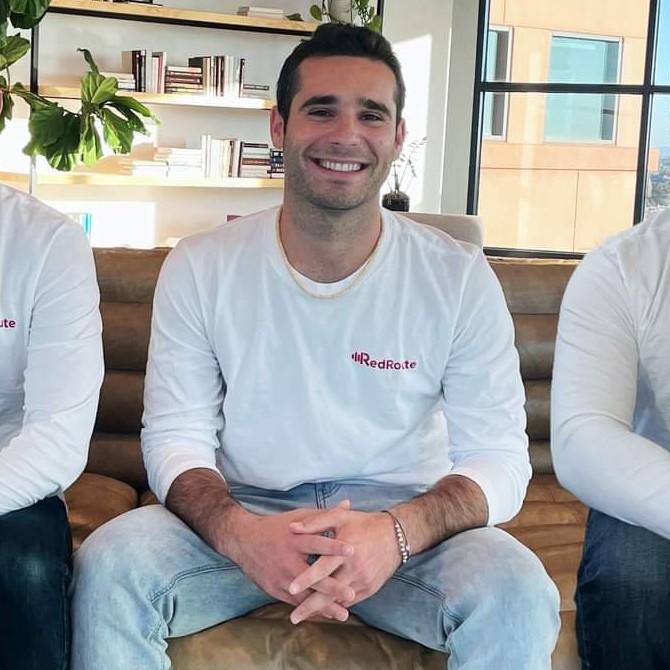
Brian Schiff
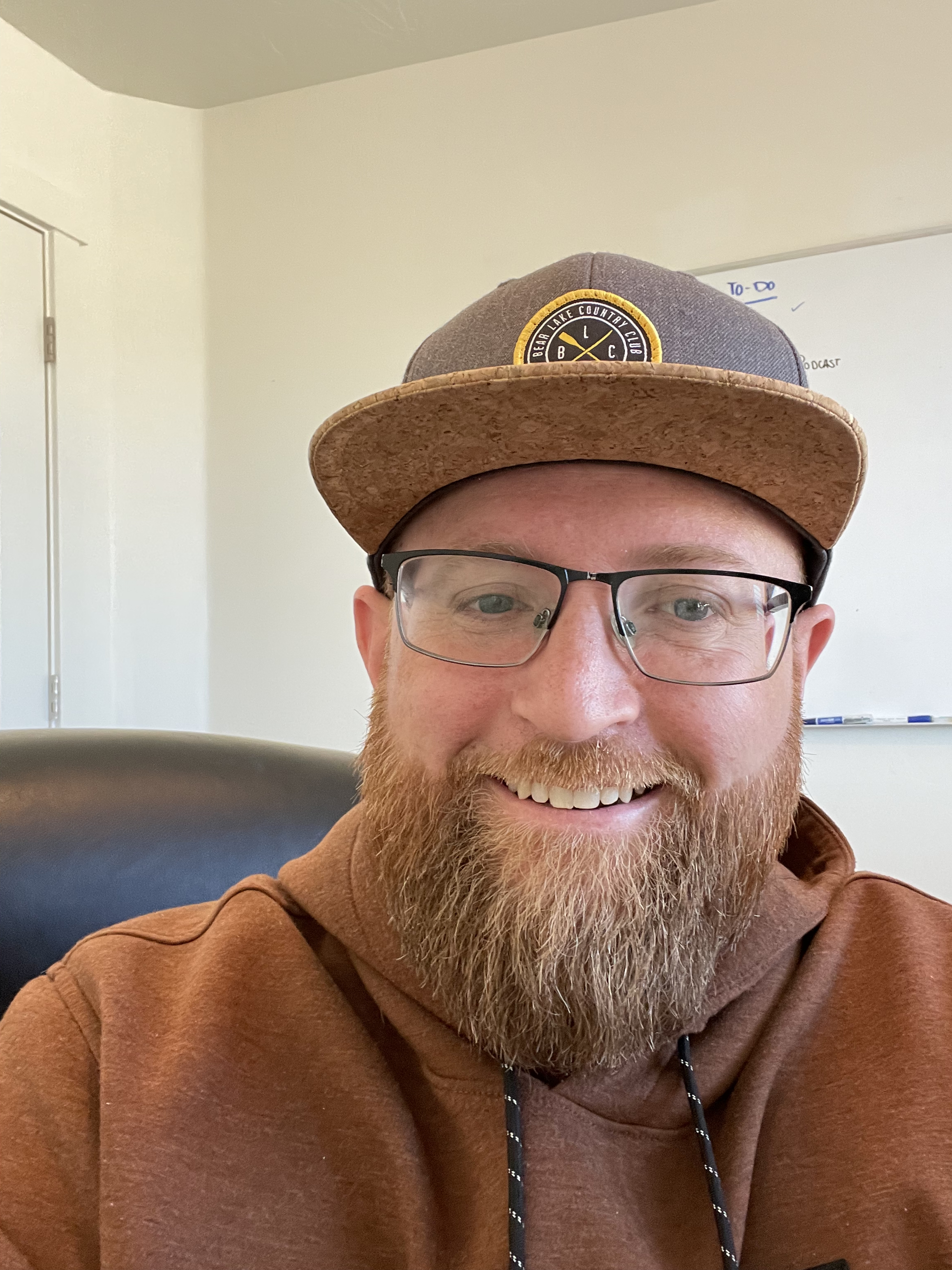
James Gilbert
Today's Guests
